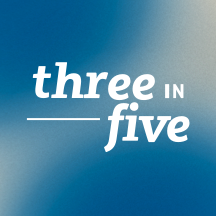Explore institutional insights

Client sign in
- Please enter a search term.
-
Insights
Stay up to date

Market update

Investor insights
-
Investments
Stay up to date

Market update

Investor insights
-
About us
Stay up to date
Learn more about our investment group

Market update

Investor insights
- Please enter a search term.
- Investments
-
Insights
- Back
- Insights
- Insights Overview
-
All insights
- Back
- All insights Overview
- Q3 2021: Investment grade private credit update
- Evaluating private credit opportunities in today’s market
- 2022 BentallGreenOak Perspective report
- The case for real estate
- The Impact of Rising Rates – LDI Client Update
- Global Investment Outlook 2022
- Investing in an inflationary environment
- Q2 2022: Investment grade private credit update
- Regulatory Update - Schedule D Part 1 (Bonds)
- Q3 2022 Investment Grade Private Credit Market Update
- Crescent Capital Markets Q3 2022 Update
- Multi-Asset Credit Strategy: October 2022 Update
- Investing into the rate-hiking cycle
- Multi-Asset Credit Strategy: November 2022 Update
- Multi-Asset Credit Strategy: December 2022 Update
- 2023 Global Investment Outlook
- Q4 2022: Investment Grade Private Credit update
- Multi-Asset Credit Strategy: January 2023 Update
- Fireside chat: Seize new opportunities in bonds and structured credit
- Q1 2023: Investment Grade Private Credit update
- Q1 2023: Crescent Capital group market commentary
- Crescent experts Q&A: How innovation will drive private debt forward
- June 2023: Private Credit Insights
- The BMA’s upcoming regulatory review
- The Elusive Recession - Commentary by Crescent Capital Markets
- 2023 Mid-year Global Investment Outlook
- Commercial mortgage-backed securities are in the spotlight again, but this isn't 2008
- Q2 2023: Investment Grade Private Credit update
- Cautious optimism
- Q3 2023: Investment Grade Private Credit update
- Narrowly syndicated credit: yield opportunities in an underexplored niche
- Don't rest yet, the recession will rear its head in 2024. Here's how to protect your bond portfolios
- 2024 Global Investment Outlook
- Q4 2023: Investment Grade Private Credit update
- Insurance solutions
- Retirement plan solutions
- Sustainable Investing
- Market updates
-
Three in Five Podcast
- Back
- Three in Five Podcast Overview
- Mark Attanasio on the changing landscape of private credit
- James Slotnick on the U.S. midterm elections
- James Slotnick on the 2022 U.S. midterm elections
- Andrew and John on commonalities in investment grade private credit and narrowly syndicated bank loans
- Laila on operational considerations for investment grade private credit investors
- Cliff Corso on opportunity in the high net worth market
- Kate McKeon on sustainable investing and Net Zero
- Ben Greene on education, allyship, and the trans experience
- Melissa on the importance of the client experience
- Cristina Medina on Invest in Girls
- Steve on the Canadian P&C insurance market
- Rich and Peter on growing stress in the banking sector
- Doug on the debt ceiling
- Jim Blakemore on real estate debt
- Chris and Tim on the Special Financial Assistance Program for Taft Hartley plans
- Veronique on the evolution of LDI investing in Canada
- Chris Wright on the future of private credit
- Beth Brown on workplace burnout
- D.J. on the CMBS market
- Josh Davis on inner mastery and effective leadership
- James Slotnick on the politics of raising the U.S. debt ceiling
- Kevin Quinlan on climate change as a material investment risk
- Steve Peacher on the 10-year anniversary of SLC Management
- David Hamlin on fundamental credit research
- Michael Schnitman on alternatives in the high net worth space
- Steve Peacher reflects on challenges and milestones in 2023
- Subscribe
- About us
- Careers
- Contact us
- Newsroom
- Thank you
- U.S. | EN

Welcome to SLC Management site for institutional investors
Before you proceed, please select your location
Episode 37
FEBRARY 9, 2022
Brent Simmons on pension buyouts
Brent Simmons, Head of Defined Benefit Solutions at Sun Life, discusses pension buyouts and why they can be an attractive option for plan sponsors.
Steve Peacher: Hi, everybody, this is Steve Peacher, President of SLC Management, thanks for dialing in to this version of “Three in Five,” and today I'm with Brent Simmons, Brent and I've actually worked together for a long time within Sun Life. Brent heads Sun Life’s DBS business, defined benefit solutions, which has been a real success under Brent's leadership. And DBS deals with pension buyouts, which is a big part of the pension world and Brent’s here to talk about it. So, Brent, thanks for taking a few minutes.
Brent Simmons: Thanks for having me today, Steve. Appreciate it.
Steve Peacher: So, first, what I want to do is just start and maybe ask you to explain to everybody listening what is a pension buyout and why would a pension plan consider a buyout?
Brent Simmons: Absolutely, a pension buyout is a transaction where a company buys an annuity for a group of its DB pension plan members from a life insurer. Now, generally, those members or retirees are deferred vested, but sometimes you can have some active members in there as well. And the cool thing about these transactions is responsibility for paying that group of members transfers over to the life insurer, as well as all of the associated risks. So, if members live longer than expected, or if investments performed poorly, it's the life insurer that's responsible and has to come up with the extra assets to pay those pensions, not the company. So as a company, this has a number of benefits. Number one, it decreases the size of the pension plan and, you know, perhaps the bad surprises that could be coming out of the pension plan. So decreases a company's pension risk, which may also lead to decreasing the time and attention that they have to spend thinking about their DB pension plan, allowing them more to focus on their core business. And last but not least from a plan member point of view, it increases or enhances benefits security. The company can rest well at night, knowing that the pensions for these members are being paid by a life insurer whose core business is keeping these kinds of promises.
Steve Peacher: Well if I'm, you know, the CFO of a company with a pension plan and you know what I'm thinking about, should I pursue a buyout as you described, what are some of the things I need to take into account as I'm considering whether to do that or whether or not to do?
Brent Simmons: I would say conventional wisdom has shifted over the last couple of years to looking at a pension buyout as a form of corporate divestiture, which, you know, which makes sense when hundreds of millions or sometimes even billions of dollars are changing hands. So, you know, you can imagine with any kind of corporate divestiture, there's a lot of considerations to walk through. I'll highlight two of them, Steve. Maybe two of the ones that are sometimes underappreciated in these transactions, structuring and governance. On the structure side, structuring is really all about trying to make your transaction look attractive to the life insurer. So which members are you going to be including from your pension plan? Is it going to be all your retirees? Is it just going to be a portion of your retirees? When you bring that quote to market, is it going to be broken up into little pieces or is it going to be more winner take all? And interestingly enough, even something as simple as when are you going to bring the transaction to market can be pretty important. You know, you don't want your transaction coming to market the day after some mega transaction has come to market. You want to give life insurers a chance to really concentrate in on your group of members, on your quote, sharpen their pencils and give you the best price. The second bucket is around governance. So getting back to that corporate divestiture analogy, you know you need a great project plan, you need a strong project manager, you've got to make sure that that you have all your steps lined out and obviously your pension consultant can help you with that. But another really important piece is identifying and educating your key decision makers in advance of the transaction, making sure that you know who's going to say yay or nay to the transaction, making sure that those qualitative and quantitative factors are mapped out and making sure everybody's just aware that the transactions are actually happening. You know, believe it or not, we've had transactions fail because decision makers and decision criteria weren't clearly defined. You know, somebody needed to sign off on something and they didn't even know that transaction was taking place. So, after spending a ton of time on one of these things, you want it to transact on the day.
Steve Peacher: So of course, when pension plans are independent, they manage the assets that stand behind their liabilities. And then if they do one of the deals, as you're describing, those assets are transferred to the insurance company. How has the asset side of this transaction evolved?
Brent Simmons: Yeah, it's really transformed. In the early days, and you know, you and I both have lived through this pension plans weren't so interested in risk management, they had a lot of returns taking assets. And so, when it came time to do one of these transactions, they had to liquidate all of those return seeking assets like equities, convert it into cash and then wire transfer it over to the life insurer. We've seen a great trend in the last five years where more DB plans are better matching their assets and liabilities. You know, they're really taking a page out of the book of what life insurers have been doing for decades. So, in today's portfolios, more often than not, we're seeing lots of fixed income assets, whether those be public assets or private assets, as well as a healthy allocation to credit. And those are really common strategies and really familiar for most life insurance companies. So, it opens the door to doing an in-kind transfer, which really leads to a better price for the pension plan for a couple of different reasons. One as you can imagine you don't have the round-trip friction costs of buying and selling assets, because you're just transferring them over in-kind, and so you save that money and that gets passed along with the pension plan. And then number two, nobody's out of the market for any period of time, whereas in the old way when things were converted to cash and wire transferred over, life insurers were adding margins for that market uncertainty. You know, the time between the time that they got the cash and they could reinvest that. So, for a couple of really good reasons, in-kind transfers are growing in popularity and leading to better pricing.
Steve Peacher: Well, these pension buyouts are a fascinating and very complex area. I think people who don't know the market well would be surprised at how much volume has been done over the past few years globally. And I should have mentioned at the outset for our listeners that your team is the clear leader in Canada in pension buyouts, which is a very active market, which is a real benefit to pension plans and also to Sun Life. Changing directions on a personal note, you know, I have a lot of friends who claim to be know a lot about wine. I'm not sure many of them know as much as they think, but you're the real deal. I know you are pursuing your certified sommelier designation prior to COVID, which is pretty neat. And my question for you is what is it about what studying wine and evaluating wine that that you really like? I mean, what is what attracts you to putting so much time into it to the point where you're actually trying to get your certification?
Brent Simmons: Well, I got to say, Steve, one of the benefits of studying wine is that your homework is to drink a lot of wine. So, I got to say that's a that's a lot more fun than most of the university courses that I would have taken over time. But you know, I love a couple of things about it. One, there's just there's so much variety out there. Just when you think you've kind of uncovered something new, there's five new producers or wineries that open up and you kind of got to get to the bottom of what they're all about. And then the other piece is at the heart of it is as much fascination and imagination as folks put around wine and describing it, at the heart of it is really an agricultural product. It's something from a farm. From year to year, you have good crops and bad crops, and the winemaker has to struggle with those ingredients that he or she has. So, it's always just fascinating to understand what goes on in the field, what goes on in the winery and what does that final output look like.
Steve Peacher: Well, you must love to travel and see wineries, and I'm sure Covid's put a bit of a dent in that. Some of you can get back to that soon. So, listen, Brent, I really appreciate it. Very interesting area. I hope our listeners enjoyed it and thanks for tuning in everybody and Brent thanks to you for taking a few minutes.
Brent Simmons: Thanks again for having me, Steve. Take care, everyone.
This podcast is intended for institutional investors. The information in this podcast is not intended to provide specific financial, tax, investment, insurance, legal or accounting advice and should not be relied upon and does not constitute a specific offer to buy and/or sell securities, insurance or investment services. Investors should consult with their professional advisors before acting upon any information contained in this podcast. This podcast may present materials or statements which reflect expectations or forecasts of future events. Such forward-looking statements are speculative in nature and may be subject to risks, uncertainties and assumptions and actual results which could differ significantly from the statements. As such, do not place undue reliance upon such forward-looking statements. All opinions and commentary are subject to change without notice and are provided in good faith without legal responsibility.



